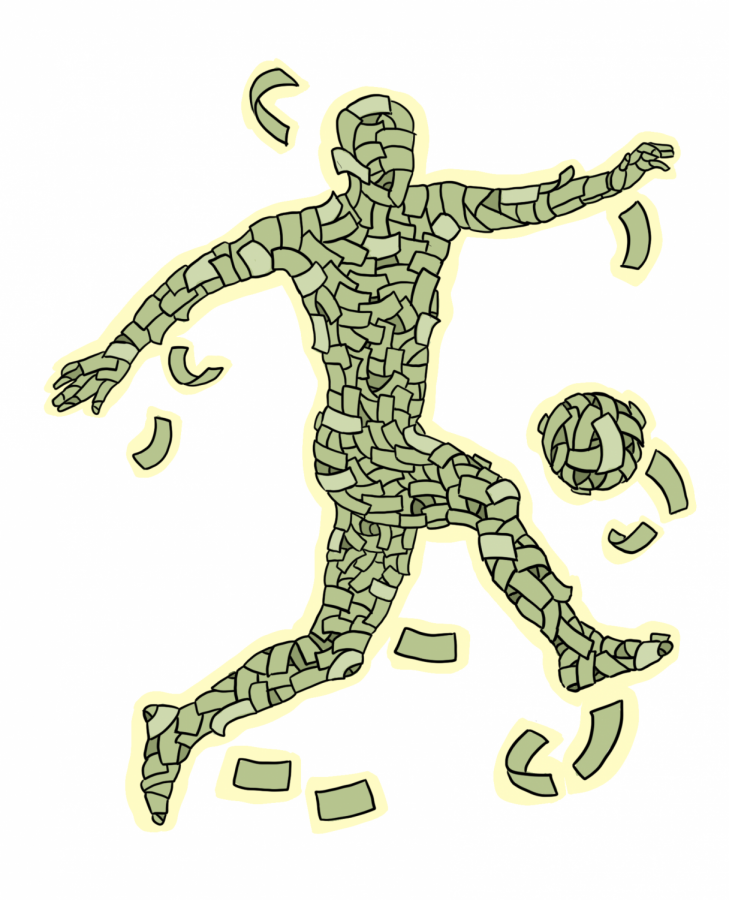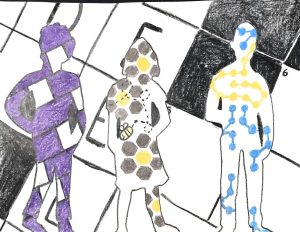Foreign Money in European Football and the Greed of Large Clubs
May 30, 2021
The European soccer world has been anything but at ease these past few weeks, almost all tumult coming from the announcement of the Super League. In order to understand the Super League, it is important to understand what it was trying to replace—the Champions League. The Champions League has been the most prestigious club tournament in the soccer world these past three decades. The top 36 teams in Europe qualify each year by placing in the top three of their domestic leagues. This competition runs on top of domestic league games, and is played on Tuesdays all year until the final in May. Most importantly, it generates significant revenue and the cash prize is enormous for participants.
In the last decade, two major developments have led to problems in this European soccer system. For much of the 1960s, ’70s, and early ’80s, there was a diverse pool of teams that won the Champions League. Teams from Romania, Yugoslavia, Greece, Switzerland, Ukraine, and other European nations had won at least one Champions League trophy during that time. However, this diversity of teams winning the cup would soon come to an end. During the late ’80s to early ’90s, betting on soccer, the development of the internet, and greater international interest for these competitions, most notably in Asia, led to an influx of money in the industry. This intake of money disproportionately benefited five leagues as a result of greater international popularity: the English, Spanish, Italian, German, and French leagues. The second main development, which is closely connected to the first, is the deterioration of the “50 + 1” doctrine. Although it is an informal institution, 51% of clubs had to be owned by fans, or members, and only 49% or less of the ownership was open to companies and corporations abroad. This informal institution was soon done away with in the Big Five leagues, as clubs who had repeated successes in their domestic leagues wanted to take advantage of even more money. This additional cash was to be used to buy the more expensive (and often better) players in the world and keep on winning, continuing this perpetuating cycle.
Fast forward to the 2010s, and the Champions League has been almost Big Five-dominated for the last 20 years. Along with that, the allocation of Champions League spots changed, as the Union of the European Football Association (UEFA) introduced a new system of quantifying leagues’ “success” called the “Conference Coefficients,” which guaranteed more spots in the Champions League to members of the Big Five. A new generation of fans—like myself—have grown up watching a group of about ten clubs win the Champions League every year. The league’s group stage games are decreasing in popularity, and everybody is waiting until the minnows from the “lesser” leagues are out of the competition, so that we can watch Big Five clashes.
News broke out on April 18th that twelve clubs from Europe’s Big Five leagues—including Liverpool, Juventus, Barcelona and Real Madrid—had come to an agreement to secede from the Champions League and join a new, financially superior, Super League. COVID-19 has impacted these clubs and their finances, and with the Champions League refusing to offer more money to these top clubs, secession was an idea that many club owners saw as necessary. Moreover, as clubs have gotten richer, player transfer fees have also increased; with these increases, many clubs, including these larger teams, have been forced into debt. Thus, these teams unilaterally decided that what is best for soccer is for them to have more money to distribute to poorer clubs whose players they wish to buy. Ironically enough, the smaller clubs have faced much more tenuous times and financial hardships, and yet they have not complained and tried to form a new league.
Mere minutes after the new league’s announcement on Sunday night on the 18th, television pundits, team managers, current and former players, and, most importantly, fans were enraged. Consequently, the hashtag #NoToSuperLeague received over several million posts on Twitter after a few hours. The following Monday, fans in England and Spain rioted outside their clubs’ stadiums; soccer’s largest boycott of all time occurred when the viewership of the subsequent Monday night soccer game between Liverpool and Leeds United fell by 40%. The UEFA and Fédération Internationale de Football Association (FIFA) threatened that all players who would participate in the league would be automatically disqualified and prohibited from participating in international competitions and representing their respective countries. Could a World Cup without Messi, CR7, or Neymar even be considered a World Cup?
Domestic leagues with teams involved in the Super League started threatening clubs with point deductions and large fines. The backlash eventually forced many of the founding clubs to reconsider their stances: Chelsea and Man City quickly pulled out of the league on Tuesday the 20th morning. The German teams who were not yet signed on to the new league, but were a logical next step, announced they would not join the league. Soon enough, the rest of the English clubs announced in a joint statement that they would not participate. The Italian teams followed, and as bad went to worse for the Super League, Perez put the project on hold.
The protests in response to the Super League soon took a turn to represent a general outcry against the growing inequality in the game. Teams that would be accepted into this new Super League would not have earned it; this wasn’t a meritocratic league like the Champions League where each team had to qualify. Moreover, some of the founding teams had not qualified for the Champions League in years, and it looked like they would not qualify yet again this year. The Super League would effectively allow these teams to compete against big teams based on name brand only, without really having to earn a spot based off of the quality of their play, while “smaller” teams who worked hard all season in their domestic leagues would not receive the economic reward the Champions League would offer in a typical setting.
Why does it matter that a bunch of fans stirred up protests in Europe against angry club owners who were trying to recoup money they had lost in the pandemic? These protests reflect a larger theme of money in soccer that has been transcending the latter half of this decade. Protesters’ slogan, “Made by the Poor, Stolen by the Rich,” perfectly reflects the position most of the soccer world is taking. Clubs and fans need to address this problem, before the inequality is insurmountable and soccer loses its magic.











